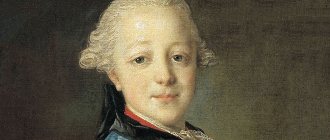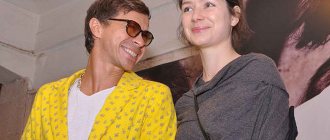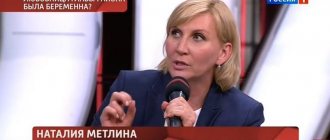Pavel Durov is a Russian entrepreneur, programmer and dollar billionaire. Founder of the social network VKontakte and creator of the cross-platform messenger Telegram. Durov is called the Russian Mark Zuckerberg, and is also often criticized for his eccentric antics and statements. On November 19, 2012, Nikolai Kononov’s book “The Durov Code” was published, describing the formation of VKontakte and its creator. He left Russia in 2014 and said that he was not going to return. His merits are very well described in the above book, and in this article we will look at the childhood of the Russian “genius”.
Childhood and youth
Pavel Durov was born in October 1984. Parents are the people who instilled in their children a love of work and inexhaustible optimism, independent of the environment or the political situation.
Father, Doctor of Philology, Valery Semenovich is a native Leningrader, according to unconfirmed information, born Tulyakov. Having married Albina Durova, the future mother of a businessman, he took his wife’s surname. In 1992, a specialist in ancient literature headed the department at the philological department of St. Petersburg State University. Albina, originally from Omsk, also taught at this university. There is an unconfirmed version on the Internet about the Jewish nationality of the Durovs.
Pavel has a brother Nikolai, a candidate of physical and mathematical sciences. Nikolai showed himself early on as a gifted programmer; even as a child, he took part in mathematical competitions and olympiads and twice became the absolute world champion in programming among students. Later, it was Nikolai who would help his brother create the famous social network and for a long time would be the technical director of the company.
What Mikhail Petrov, Albina’s son from her first marriage, does is unknown.
Initially, Pavel lived and studied in Turin, and after returning to Russia he entered the Academic Gymnasium. The main direction of study is knowledge of the basics of philology. In the 11th grade, he became interested in programming and virtual computer projects.
After graduating from high school with a silver medal, the young genius enters the Faculty of Philology at St. Petersburg State University. During his stay at the university, he often became a scholarship recipient and laureate of the Potanin Prize.
In addition to studying languages and his passion for programming, Pavel Durov was engaged in military training. The rank received is reserve lieutenant. University studies continued until 2006, ending with a diploma with honors. Pavel never took the document. Even in his youth, the future millionaire decided that he did not want to spend every day on monotonous office work, and determined for himself that he was created for the Internet.
Current projects: messenger, cryptocurrency, blockchain platform
So, what websites and projects does Pavel Durov own in 2020? He is the owner of Telegram, which in 2020 attracted investors to develop its own cryptocurrency Gram and the TON blockchain platform and whose value will exceed $3,000,000,000 in the coming year.
Durov makes money on Telegram differently than on VKontakte: VK brought in income from advertising, but Telegram has a platform for creating bot interlocutors. In 2020, the technology brought in “only” $10,000,000.
You will learn 10 little-known facts about Pavel Durov from the following video.
Last summer, Invest estimated the cost of one token, which will become a settlement coin in the blockchain, at $5.1. According to preliminary forecasts of the same company, by 2028 the price per token will increase to $15-30, which, accordingly, will increase Pavel’s fortune.
The TON platform should issue more than 5,000,000,000 Gram cryptocoins, which can be used to pay for the use of services and applications created on the platform. Subject to successful implementation and operation of the project, TON can bring its creator more than $10,000,000,000.
In October of this year, information appeared that the US Securities and Exchange Commission won the lawsuit and achieved a temporary freeze of the project, since TON was suspected of an opaque business model.
Education
After graduating from the gymnasium that was attached to St. Petersburg State University, Durov decided to enter the university at the Faculty of Philology. Before taking a closer look at his training, it is worth noting that Pavel still has a passion for languages. In the interview, he also repeatedly mentioned that he came to programming precisely through studying various languages. He currently speaks French, English, German, Spanish, Italian, Latin and Persian.
Admission to St. Petersburg State University in 2001 was due to three factors: good knowledge, a father who worked there, and a brother who also chose this university, but the mathematics department with an emphasis on programming. The most comfortable environment had a positive effect, as a result of which Durov took an active part in the life of the institution. Pavel’s classmate Yuri Lifshits, who is currently also a businessman and part-time scientist, notes Pavel’s leadership qualities and charisma.
Such statements are quite justified, because during his studies he was awarded a government scholarship from the President of the Russian Federation three times, and also received a scholarship from V. Potanin’s program for three years.
The first steps towards a future career were also taken during training. The first resource created was DUROV.COM, which was intended as a network for the exchange of educational information - reports, coursework, etc. The second was the more serious resource SPBGU.RU - the actual harbinger of VKontakte: a basic model of communication was modeled in the forum format that already existed at that time. Participants had their own profiles, which included their real name, department, and course. Such “de-anonymization” was done with the aim of unifying and increasing activity on the site.
Having graduated from the military department and university in 2006, Durov graduated with honors. Pavel made his main conclusion, which will determine his entire life path: power is given not only to those who have money, but also to those who have information. In 2007, the first version of the most popular social network in Russia at the moment, VKontakte, will be launched.
Creation of VKontakte
While still a student, Durov began collecting a database with educational materials for students of humanities faculties, which was located at durov.com. He wanted to unite fellow students scattered across different buildings using a resource convenient for virtual communication - this is how the spbgu.ru forum was born. Each user’s personal account included columns with first and last name, faculty, list of friends and groups, as well as the ability to blog. To promote the site, Durov organized intra-university beauty and design competitions.
This is what the “ancestor” of VKontakte looked like
One day, his old friend Vyacheslav Mirilashvili, who studied in the States, wrote to Durov. He observed the rapidly growing popularity of the social network Facebook and shared his findings with Pavel. Together they discussed the idea of creating a Russian-language social network. Money for the project was borrowed from Vyacheslav’s father. The founders of the company were Pavel Durov and his friend Lev Leviev with Vyacheslav.
In September 2006, the social network VKontakte was launched. Its founders borrowed the appearance from the brainchild of Mark Zuckerberg. The budding entrepreneurs were helped by Nikolai Durov, who took upon himself the optimization of the load on the servers.
Interview with Pavel Durov At first, registration on VKontakte was possible only by invitation, but already in December 2006 the site became open to all users. During the first year of operation, the number of VK users grew to three million. To attract new users, the site’s management organized competitions, such as “We’ll give an iPod to the person who brings the most friends.”
Despite minimizing costs, the new project vitally needed investments to support servers, especially since Contact at that time did not know advertising and was a completely non-profit project. The first investor in VKontakte was Yuri Milner and his Digital Sky Technologies fund, which bought 25% of the shares of the social network for $6.3 million and subsequently sold them to Mail.ru Group.
However, it was impossible to delay the commercialization of the site. In 2007, VKontakte users had the opportunity to increase their ratings and give gifts to friends for virtual currency - “votes”. Two years after the site was launched, the first banners for contextual advertising appeared on it. By that year, the site had already become a leader in terms of traffic in the Russian-language segment of the Internet, and the number of users reached 20 million.
Inside the VKontakte office
Pavel rented the top two floors of the famous Singer House on Nevsky Prospekt, where the main office of VKontakte moved.
Since December 2011, Durov has taken an active part in financing startups selected on a competitive basis. The first six selected startups received $25 thousand from Durov. At the beginning of January 2012, Pavel donated $1 million for the development of Wikipedia.
(Singer's house)
In November 2012, Nikolai Kononov’s documentary book “The Durov Code” was published, dedicated to the development of VKontakte. The rights to film the book were immediately acquired by AR Films. Pavel has an extremely negative attitude towards the film adaptation, however, despite his disapproval, the film's release was scheduled for the end of 2017.
Nikolai Kononov wrote a book about Pavel Durov
In 2012, singer Sergei Lazarev, concerned about the large volume of pirated content on Russia's largest social network, announced his intention to sue VKontakte. After this, Durov wrote on Twitter that all Lazarev’s songs had been removed from VK, which only increased the cultural value of the site. For some time, when trying to play any of the singer’s compositions, users received a message: “The composition has been removed from public access due to lack of cultural value.”
“Sergei Lazarev’s songs do not have cultural value”
His “corporate war” with one of the main shareholders of Vkontakte, the Mail.ru Group, is known, which in 2011 sought to absorb the social network and merge it with the Odnoklassniki website. In 2012, a conflict also broke out between VKontakte and the management of the Vedomosti newspaper, related to one of the site’s innovations, which allows you to view news from third-party resources without clicking on an active link.
The history of the formation of VKontakte - how it happened
Durov worked tirelessly on the St. Petersburg State University student forum. He served the technical part, created topics for discussion, and debated with himself from different accounts. However, students registered online under fictitious names, which prevented effective communication.
In 2005, Durov’s friend who returned from the USA introduced him to the social network Facebook, where users posted their real names, surnames and photos. Thus, the desired concept for a website for Russia was found.
In general, Pavel did not like Facebook. But this did not stop him from adopting certain elements of the project.
Durov himself o
Initially, it was planned to call the social network “Student.ru”, but Durov understood that his audience would be represented not only by students, but also by university graduates. As a result, the name “VKontakte” came naturally - Pavel Durov did not even consider any other options. Eventually:
- On October 1, 2006, the domain vkontakte.ru was registered;
- On October 10, 2006, the social network began to operate in closed mode (based on invitations from moderators);
- On November 1, 2006, VKontakte registration became publicly available, allowing thousands of classmates, friends, colleagues, co-workers, and neighbors to find each other and communicate virtually.
"Overheard in the Valley"
Durov never hid the fact that he decided to create an analogue of Facebook for Russian users. In Russia, before VKontakte, there had never been a resource on which users could register exclusively under their own name. Pavel told his brother about his idea, he always helped and supported him from the very first line of code. Initially, the resource could be used by people who received an invitation from the site administration. With this project, Durov erased the boundary between the real and virtual world, making the latter part of the former. The project was beginning to gain momentum - the main philosophy that Pavel adhered to was to do the project not for money, but for himself.
If you want to make a website, make it the way you would like to use it yourself; if you want to open a cafe, open it, but make it the kind of establishment that you yourself would like to return to day after day. Sincerity is the best investment, without which the colossal success that overtook VKontakte would have been impossible. Be that as it may, if when creating a business or some project you have only one thought - to feed yourself and your family, then, unfortunately, you are unlikely to be able to change the world. But if you do a project with a burning passion, with which you want to fill the lack of something in your life, then it will probably resonate with millions of other people and only then, perhaps, what you have done for the world will come back to you finances. Something like that.
In addition to VKontakte, in the Russian segment of the Internet there was a project developed by Moscow State University students, and another service - Odnoklassniki, which was an analogue of another American service, aimed at the older generation. But why did VKontakte become the most popular and widespread? It’s not only about the author’s attitude towards his project, but also about the functionality that was implemented there. As Durov himself said, American services served as an example for him of what not to do. So it turned out that only the best features from Western competitors migrated to our domestic VKontakte, but not immediately, but gradually. The first thing that hooked many oldfags on VKontakte was the selection and search by universities and faculties. Instead of a feed, the user’s page was initially used as the portal’s start page, rather than a news feed. Durov treated the profile design with special trepidation and attention.
Registered users could not only indicate their first name, last name, birthday and city of residence, but also a list of their favorite music, films, books, quotes and places of study. It has become fashionable to be registered on VKontakte. A young guy, a little over twenty years old, was able to displace the mastodons of the Runet from their leading positions with his project. They began to write about Durov in the media, and on this wave, his best school friend, Slava, decided to join Pavel. While leafing through notes about young entrepreneurs in Business Petersburg, he came across a short interview with his former classmate.
Slava was happy that his friend had achieved success, so he decided to write him a letter, and also told his other university friend about the idea of working on a cool Internet project that a former classmate was developing. Together with their friend, they came to Moscow, where they invited Pavel Durov. After some discussion, Slava offered to invest money in the development of the social network and borrowed $30 thousand from his father’s company to invest it in VKontakte. The social network continued to develop and at some point the attention of a large venture investor drew attention to it. Initially, he offered the guys $40 million for a full stake, but after Slava’s conversations with him, he agreed to purchase 25% of the company for $15 million. Pavel invested this money in real estate in the center of St. Petersburg - he purchased one apartment as the first VKontakte office, and the second simply to save money.
From ordinary programmers to billionaires - the success of Pavel Durov
Many programmers and entrepreneurs dream of repeating Durov's success. His unique breakthrough into the world of business combined extraordinary talent, determination, obsession with an idea, perseverance, deep knowledge, and understanding of the needs of the audience. The history of the creation of his business can be represented in the form of the following sequence of stages.
At the beginning of his journey, Durov was faced with a banal question: where to get start-up capital? He himself did not have the necessary amount. The funds were found by his partner, Vyacheslav Miriashvili (they say that he borrowed money from one of his father’s companies). It was decided to register the company as an LLC.
Interesting fact: Initially, Durov’s share in the authorized capital was 20% (although he still made the main decisions). Mirilashvili owned 60% of the company and another 10% was bought by his father. 10% was transferred to another founder - Durov's partner - Leviev.
A year after its founding, 3 million users were subscribers to the VKontakte social network. In terms of page traffic, it surpassed Odnoklassniki and the Chinese portal Xiaonei. In December it became known that this was the second most visited site in Russia (the first was Yandex.ru). Active promotion of the network in the CIS countries began.
Such successes could not but interest the business community. Durov received many offers to purchase VKontakte. Moreover, we were talking about tens of millions of rubles. However, its founder did not plan to deliver his brainchild so soon. In the same year, a transaction was carried out to sell 24.99% of the company to the Digital Sky Technologies (DST) fund. Investor funds poured into the network, but control over it remained with the founders.
Information: The DST Fund (Digital Sky Technologies) is an investment fund founded in 2005 by Yuri Milner, Grigory Finger, Alisher Usmanov, for the purpose of investing in Internet projects. In 2010 it was renamed Mail.ru Group.
On April 1, Pavel Durov announced on his page that he was resigning from the post of General Director of VKontakte LLC, explaining this by reducing the available freedom of action, but then, on April 3, he withdrew his resignation letter. Then it turned out that this was not an April Fool's joke; on April 21, the owners of the social network VKontakte granted the resignation letter, which had previously been sent to them by the general director and founder of the network, Pavel Durov.
Since September 16, 2014, the sole owner of VKontakte is Mail.Ru Group.
Charity: what does a billionaire donate money to?
As the owner of VKontakte, Pavel donated $1,000,000 to Wikipedia in 2012 and called on other entrepreneurs to financially support the online encyclopedia.
One of the resources mentions that in 2011, according to the head of the VK press service, Pavel Durov supported a school for gifted children and the “Give a Child Life” foundation. The amount of donations is also mentioned - 20,000 rubles. Small charity is also charity.
Be sure to read it! How much does the favorite of millions of women, Brad Pitt, earn?











